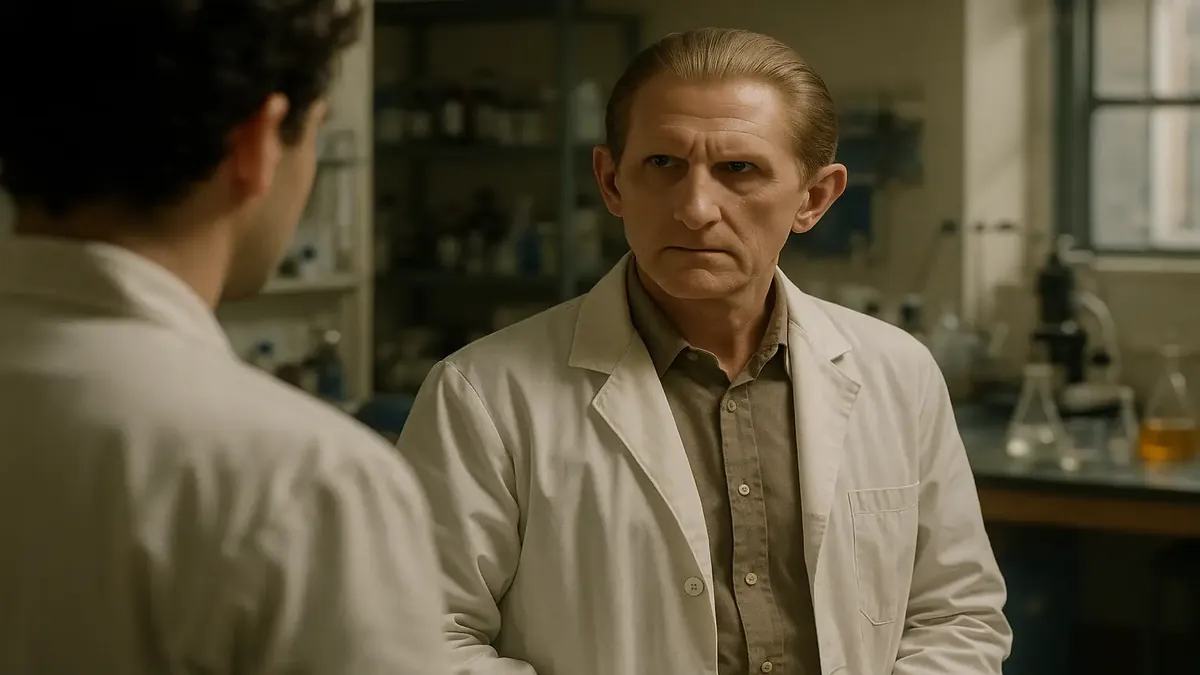Lab Shenanigans: How One Intern Outfoxed a Petty Scientist With Pure Kindness

There are many ways to exact revenge on a workplace nemesis: subtle sabotage, passive aggression, or a perfectly timed eye roll. But sometimes, the most potent weapon is the last thing anyone expects—genuine, bewildering kindness. This is the tale of how a humble lab intern turned the tables on a petty group leader using nothing but good science and a confusing dose of magnanimity.
The Science of Petty Revenge
Let’s set the stage: Our protagonist, an unpaid lab intern (let’s call them Rookie), is biding their time before starting a coveted PhD program. Their boss is friendly with "Odo"—a neighboring group leader named for his likeness to the shape-shifting security chief from Star Trek: Deep Space Nine, but sadly lacking the character’s redeeming qualities.
The request was simple: borrow a smidge of a DNA plasmid—basically, a tiny ring of genetic code that can convince bacteria to make proteins and resist antibiotics. But the catch? Bacteria are notoriously lazy. If forced to make a protein they dislike, they’ll ditch the hard work, keep the resistance gene, and leave scientists with a whole lot of nothing. Only special strains of bacteria will play along, and using the wrong kind means all your careful science goes down the drain.
Enter Odo, the Gatekeeper of Genetics
Rookie needed just a few microlitres of a particularly “unpopular” plasmid. Odo, true to form, handed over a third of what was needed—enough to be technically helpful, but not enough to actually solve the problem. When Rookie’s bacteria failed to cooperate, Odo gleefully implied incompetence and handed over his own bacteria. But science is a harsh judge: those bacteria had long since jettisoned the unwanted DNA, keeping only the part that let them survive antibiotics. Rookie was left with little more than sterile water for their troubles.
Odo, refusing to believe a lowly intern could out-science him, demanded proof. Rookie delivered, and finally—reluctantly—Odo parted with his personal stash of the precious DNA. Rookie, ever the enterprising scientist, used the correct bacterial strain, grew up a bounty of compliant bugs, and successfully prepped top-tier plasmid.
The Twist: If You Can’t Beat Them, Baffle Them
Now, here’s where most of us would ride off triumphantly into the sunset, leaving Odo to stew in his own scientific soup. But Rookie had a better plan. Instead of holding a grudge, they waltzed into Odo’s lab, casually dropped off a generous tube of pristine DNA and a plate of perfect bacteria, and breezed out with nary a word.
The fallout? Delicious confusion. Odo, more used to lab politics than lab kindness, was thrown into existential crisis. Why would an intern he’d belittled and blocked go out of their way to help him? Was this some elaborate ploy for a job? A double bluff? Rookie’s boss quickly squashed that theory—Rookie was already off to bigger and better things.
The Art of Confusing Your Enemies
There’s a certain satisfaction in outsmarting a petty adversary with their own mistakes—especially when you do it by being the better person. Rookie’s act of “petty benevolence” left Odo with nothing to do but question his worldview (and perhaps his scientific competence).
The real genius here isn’t just the science—it’s the strategy. By returning kindness for pettiness, Rookie didn’t just win the battle; they won the war for office karma. The story quickly circulated among labmates, and even Odo’s wife (herself no stranger to lab drama) offered an out-of-the-blue congratulations, sealing the legend.
Takeaway: When in Doubt, Be Unpredictably Nice
Lab politics, like any workplace drama, often spiral into cycles of tit-for-tat. But sometimes, the most devastating play is to break the cycle entirely. By choosing generosity, Rookie not only solved their own problem but left their rival in a state of delightful disarray.
So next time you find yourself facing a petty adversary—whether in the lab, the office, or anywhere else—consider the power of confusing kindness. After all, as any good scientist knows, the best experiments are the ones no one sees coming.
Have you ever confused a workplace nemesis with unexpected generosity? Share your stories in the comments below—because nothing says revenge quite like a random act of kindness (with a side of confusion).
Original Reddit Post: If you can't beat them, confuse them